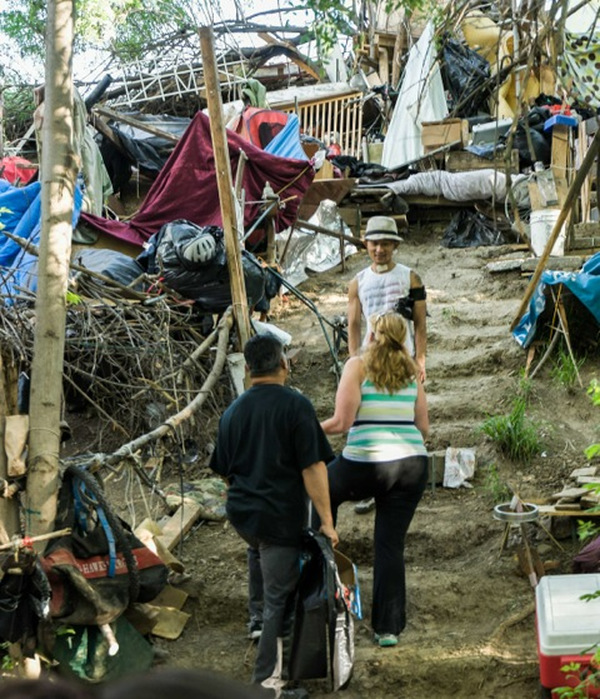
PHOTO/SILICON VALLEY DE-BUG
SAN FRANCISCO BAY AREA — A recent report on the state of Oakland reveals that it has lost fifty percent of its Black population, most of whom have relocated over the last decade. Throughout the Bay Area, people share stories of living with relatives, on the streets and in hotels. Teachers and professors shed tears as they report of students living in cars, struggling to pay for books and supplies while living a transient life, seeking an education for a career they know they may never have. Well-educated men and women, sometimes with two, maybe three degrees, find themselves without a job, a home and a direction in life. Today, we’ve gone beyond gentrification. Today, we face the much more massive and increasingly common challenge of displacement.
Communities are being ripped asunder. And while the American tendency to blame oneself continues to pervade unabated, the cold and unwavering reality is that there is a much more objective, all encompassing reality that is rapidly engulfing the entire Bay Area, and many, if not all major cities in the United States. That reality is automation. However, the Bay Area, like few places in the United States is unique, in that it bears both the burden and the opportunity of being one of the few locations that are driving the push for automation. Silicon Valley, with it’s emerging tech giants like Google, Apple, Twitter, Facebook and many of the past giants of Oracle, Cisco and so many others, are at the center and core of this unstoppable process. While one worker gets paid $100,000 to develop the robots that replace humans, 100,000 of workers are left without jobs, with no clear plan in sight to replace them.
Many recent reports state that within the next 20 years, 47 percent of all jobs will be automated. Another report states that within the next twenty years, 50 percent of all jobs will be part-time. What does this mean for the American worker? In one simple word: displacement. Americans are being displaced from their jobs, their homes, the communities and their humanity. In the meantime, corporations are reaping untold wealth at the expense of millions of people here in the United States, and billions of others throughout the globe. The rapidly developing pace of technological improvement makes it impossible for companies not to compete, and there is no way to undo the technology. The process of displacement and dispossession continues.
What will this mean for us, the people? Well, robots don’t contribute to the economy. They don’t have to be paid, and they don’t buy anything. Further, the massive abundance that they produce cannot be purchased by a population with no money. In this environment, the system of private ownership of the socially necessary means of life cannot be maintained.
On the other hand, as more and more people are forced out of an economy that cannot account for their needs, it will become increasingly critical for people to face this one undeniable truth. The only solution to displacement is abolition of private property and the devastation it causes. A cooperative society where everyone’s needs are met is the solution.
